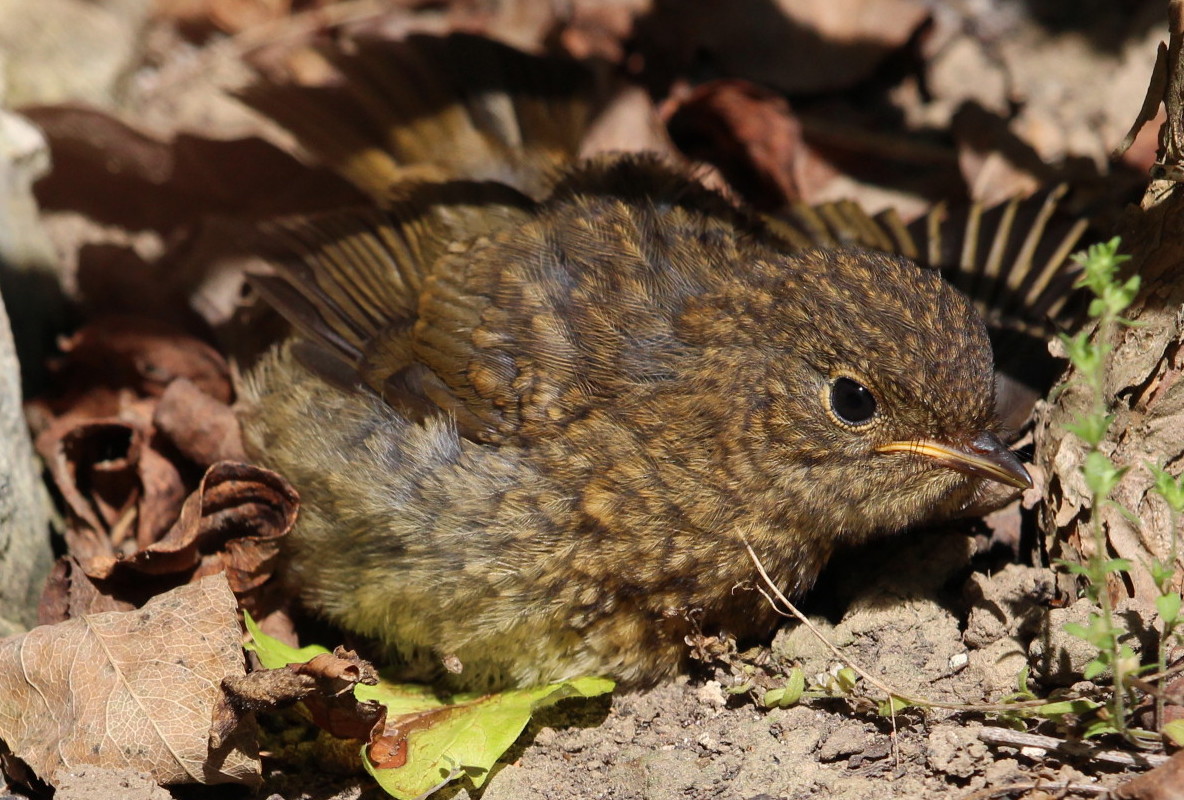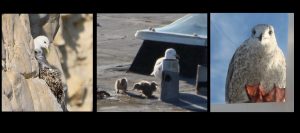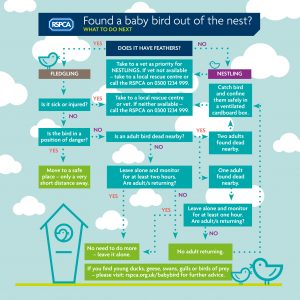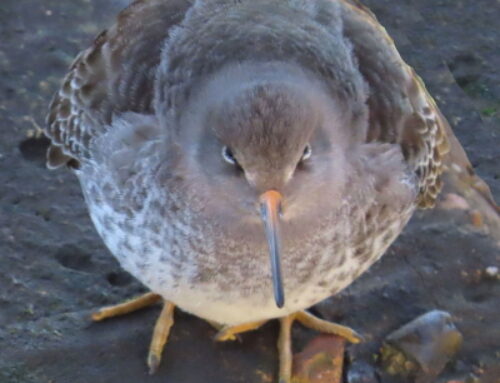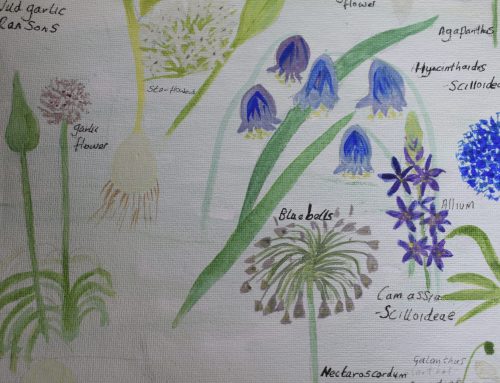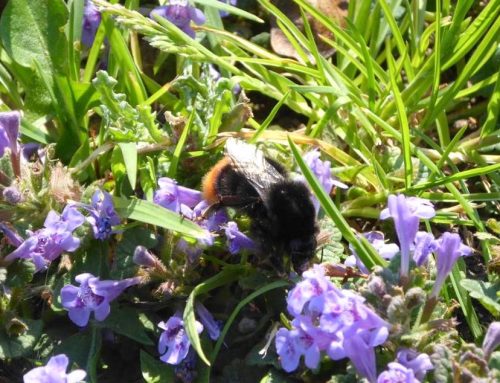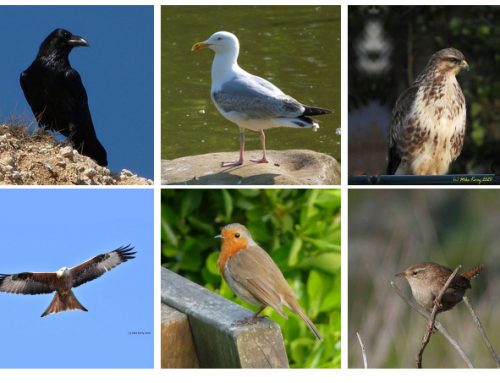Baby bird season has certainly started. My chirpy blue tits fledged their nest box a few weeks ago. I have young dunnocks flitting about all over the place and squabbling juvenile starlings discovering the delights of the bird bath.
We also have a collection of gull chicks on our roof. At the moment, they are small and cute, but before long, they will be stomping around sounding like a herd of elephants on our flat roof. Then I won’t be able to have a bath, without a fat nosy gull staring at me through the skylight! They certainly are characters!
On the cliffs, the kittiwake chicks are amazingly adapted to living on narrow perilous ledges. Their chicks instinctively know to keep still, and not risk falling from their perches. In our towns, its normally herring gulls on our roofs. They are far more clumsy, and liable to fall from a roof.
from left kittiwake, herring gull, herring gull
It’s not unusual this time of year to spot a young bird on the ground. When birds first fledge, they often can’t fly far, and will instead be moving around on the ground. The parent birds will normally be continuing to feed them, so it’s a normal part of their development.
However younger birds do sometimes fall from their nests, and need assistance. If possible, the best thing is usually to return them to the nest. If they survive an attack by a cat, they will almost certainly still need veterinary treatment.
If in doubt, follow this guidance from the RSPCA. If a bird needs help, just keep it warm and safe and call the professionals for advice.
Bird and wildlife rescue centres are normally extremely busy at this time of year. They do a fantastic job and really need our support.
Seahaven Wildlife Rescue are asking their supporters for help. Each rescue costs on average £68. All staff are volunteers. If their facebook supporters all donated £1, they would have £2000 to help pay towards their next casualties. Alternatively you could support them by buying food or medical supplies directly from their Amazon wishlist
Another organisation that covers this area is East Sussex Wildlife Rescue and Ambulance service who deal with 3000-4000 callouts each year. They also have a wishlist on Amazon.
If an emergency, please don’t use social media, but instead call the emergency services below, or your local vet.
Seahaven Wildlife Rescue 0300 561 0608
East Sussex Wildlife Rescue and ambulance 07815 078 234
Judy



